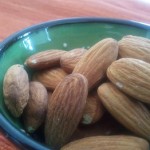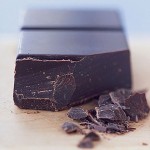
I am always amazed by the vast number of opinions available on the Internet. I seem to remember a time when I could go and find a few definitive answers, make a decision and all is done. Perhaps that was when I just asked my parents. Now you can find opposing viewpoints, good arguments and plenty of indecision on any topic imaginable.
Take diet. From raw food to all meat, everyone has a view on the best way to lose weight and be healthy. There are common threads to be found, but even then, there is always someone to show you a different story. Take this book by Jennifer McLagen – Fat: An Appreciation of a Misunderstood Ingredient, with Recipes. Just when you think you can rule out animal fat as completely unhealthy, she convincingly points out otherwise.
I love when ideas so deeply ingrained into our social belief system suddenly come up for question. It allows us to realize that there are always alternatives and perspectives – to help us find new ways of doing things or to reaffirm the choices we have already made.
McLagen was recently interviewed on Salon, an excellent website packed with news, features, columns and ideas. I’ve included some of the more intriguing questions below, including the issues of obesity, food illiteracy, the French, Crisco and fearing our food. I’d also encourage you to check out the full interview and article.
There has been a huge movement against the consumption of fatty foods over the past 30 years or so. So why is obesity such a challenge in America today?
Eating less animal fat hasn’t made us healthier or thinner. We have reduced the amount of animal fat we eat, but statistics show the total amount of fat in our diet has increased. Vegetable fats have been replaced by animal fats, which has resulted in a huge increase in polyunsaturated fat in our diet (which can depress your immune system). We’ve also added man-made trans fats to the mix, which everyone now agrees are not good for us.
It’s difficult to blame obesity on one thing. But it is definitely not consumption of animal fats. I think there are many causes — the way we eat, alone, in the car, walking down the street, the constant snacking. Increased consumption of low-fat, fat-free “foods” results in us eating more sugars and carbohydrates. These products don’t satisfy our hunger and leave us wanting to eat more. Eating good animal fat does, so you eat less.
It’s also how we relate to our food. We consume large portions of prepared foods, huge portions. Food is relatively cheap: We spend less than 10 percent of our income on it. Consequently, we don’t value it. Many see it simply as fuel or a medicine, not a pleasure. Because people have become so disconnected from their food, they fear it and continually break it down into good and bad elements.
There’s also a widespread myth that making food from scratch takes too much time and is expensive. It may not always be quicker, but it is better for you and cheaper when all the costs are considered.
If we cooked our food, sat down at a table with friends and family and enjoyed eating it, we would be healthier, happier and probably thinner.
The French appear to have a positive relationship with fat whereas North Americans do not. Why is that?
I think most cultures, especially the French, have a positive relationship with their food and this carries through to fat. Look at how the Ukrainians regard their salo [salt-rendered pork fat]. They see food as something to enjoy and celebrate, and they treat it with respect. It probably helps that their food is more expensive, but, for example, look at how the food is labeled in France. It states the origin, producer and tradition: Terroir is important, whereas here it is calories and chemical composition. In North America we fear our food, but we have to eat, so our relationship is [hopelessly split]. We lack a food culture.
However, I believe many cultures are threatened today as they adopt American habits and embrace fast and industrial food. Even in France, which is not immune from the dominant American culture, there is a problem of obesity among the younger generation.
In the book you write, “We are a generation that is computer literate but food illiterate.”
I think many of us are food illiterate in the practical sense: We know the latest restaurant, hot new chef, current food trend or exotic vegetable, but we don’t know how to roast a chicken. The British critic A. A. Gill spoke of “a generation that can read a menu in three languages but cannot write a recipe in their own.”
Cooking should be a skill everybody masters. I am not talking about professional cooking. Everyone should know how to make something to eat. We all have to eat, and cooking dinner should be a simple, everyday act. It should be valued, not seen as a chore or a competitive sport. It is a rich, sensual experience that we can all take part in and enjoy.
But we are now so far removed from the source of our food that we no longer have any instinctive knowledge about our food and how to prepare it. We don’t know if it is good or bad, ripe or rotten. Rather than listen to our grandparents, we turn to science and government — or worse, celebrities — to tell us how and what to eat. We let large companies prepare our food. It seems we can’t even wash lettuce anymore! We are sentencing future generations to ignorance and industrial food.
Food shapes and expresses our culture, and our culture is revealed by how we treat and view our food.
How did animal fat, which was so popular in the early 20th century, lose out to Crisco?
Well, Crisco and other vegetable fats didn’t do that well at first. True, they were cheaper and popular with food manufacturers, but people preferred lard, suet, poultry fat and butter to cook with.
The vegetable fats were aggressively promoted, but it was not until the 1970s — when animal fat was declared “the greasy killer” and we were told to lower our consumption — that vegetable fats became “the healthy fats.” That’s when their sales took off.
So how exactly is cooking with animal fat better for us?
Unlike vegetable oils, animal fats are very stable and don’t turn rancid easily. This makes them ideal for cooking, which involves heating the fat. And they have no trans fats.
It is much easier to roast a bird or a joint of meat if it has a good quantity of fat. The fat guarantees taste and succulence. Without it, the meat will be dry and tasteless.
Animal fats have lots of good fatty acids that fight disease, help absorb vitamins and lower cholesterol. Your body burns the short-chained fatty acids found in animal fats and stores the long-chained ones found in polyunsaturated fat. It is a myth that eating animal fat makes you fat.
Animal fat also has a good ratio of essential fatty acids. Many of us have a skewed ratio thanks to too much vegetable oil. When this ratio is out of balance, it results in illness and depression.
But best of all, fat — with its big round molecules — tastes good, it feels good in your mouth, on your tongue and it carries flavors.




